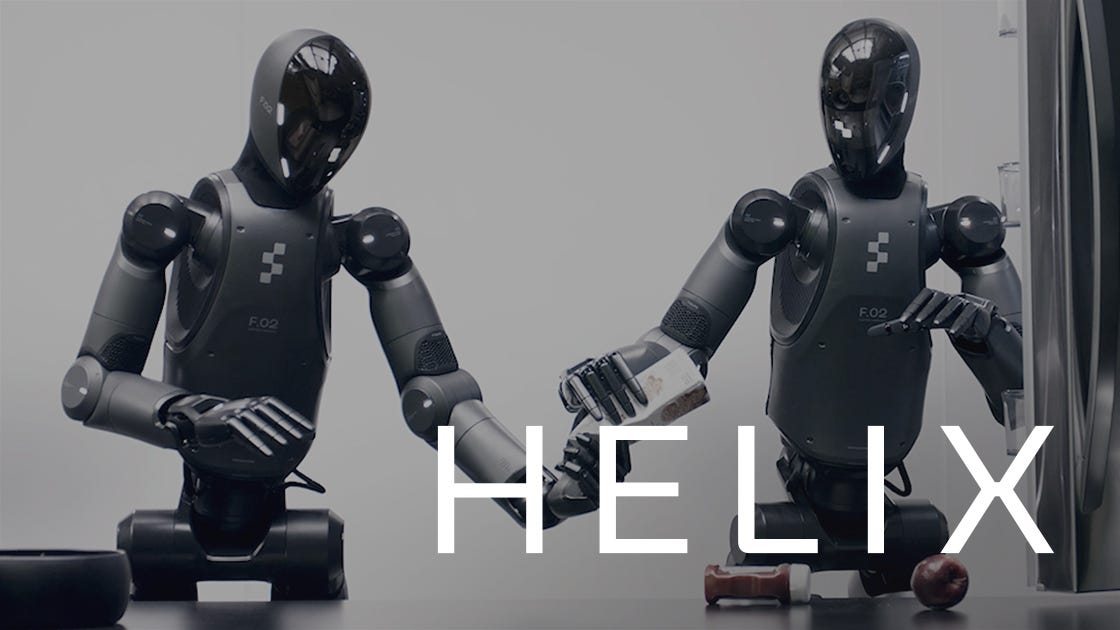AI-Powered Humanoid Robots: The Future of Home Assistance
As artificial intelligence (AI) continues to advance at a rapid pace, tech companies are pushing the boundaries of humanoid robotics. Recent developments in this field are bringing us closer to a future where AI-powered robots could become commonplace in our homes, assisting with everyday tasks.
Figure AI, a startup specializing in humanoid robotics, recently showcased its latest innovation on YouTube. The company introduced Helix, an AI model designed for robots that can recognize their environment, understand human commands, and take appropriate actions.
The demonstration featured two Figure 02 robots working together to organize groceries. When instructed to "Work together and organize them," the robots observed the items and began sorting them efficiently. One robot opened the refrigerator to store perishables, while the other placed non-perishable items on a shelf.
Although slower than humans, the robots displayed impressive dexterity in their movements. They rotated their wrists and arms naturally, grasped objects with their fingers, and even passed items between each other when necessary. The robots also exhibited basic communication skills, making eye contact as if coordinating their actions.
Figure AI explained that Helix is capable of controlling two robots simultaneously, allowing them to assist each other in various household tasks. This advancement has caught the attention of major tech players, with Microsoft, OpenAI, Nvidia, and Amazon founder Jeff Bezos investing in the company. Figure AI's valuation has reportedly skyrocketed to $39.5 billion, a significant increase from its previous $2.6 billion valuation.
Another player in the humanoid robotics field, Norwegian startup 1X Technologies, has introduced NEO Gamma, a home-use robot designed for household chores. NEO Gamma can walk on two legs and perform tasks such as making coffee, adjusting picture frames, cleaning windows and shelves, and operating a vacuum cleaner independently.
The race to develop consumer-ready humanoid robots is heating up, with major tech companies joining the fray. Meta Platforms is reportedly forming a new department focused on consumer humanoid robots, aiming to maximize the capabilities of its Llama platform. The company plans to develop its own hardware for household tasks and create related AI, sensors, and software.
Google has invested in Apptronik, a robotics company considered a competitor to Tesla's Optimus humanoid robot. Meanwhile, OpenAI has included robotics in its trademark registration, expressing intentions to develop humanoid robots with communication and learning functions for assistance and entertainment purposes.
As these advancements continue, we may soon see AI-powered humanoid robots becoming a reality in our homes, revolutionizing the way we approach household tasks and daily assistance.



